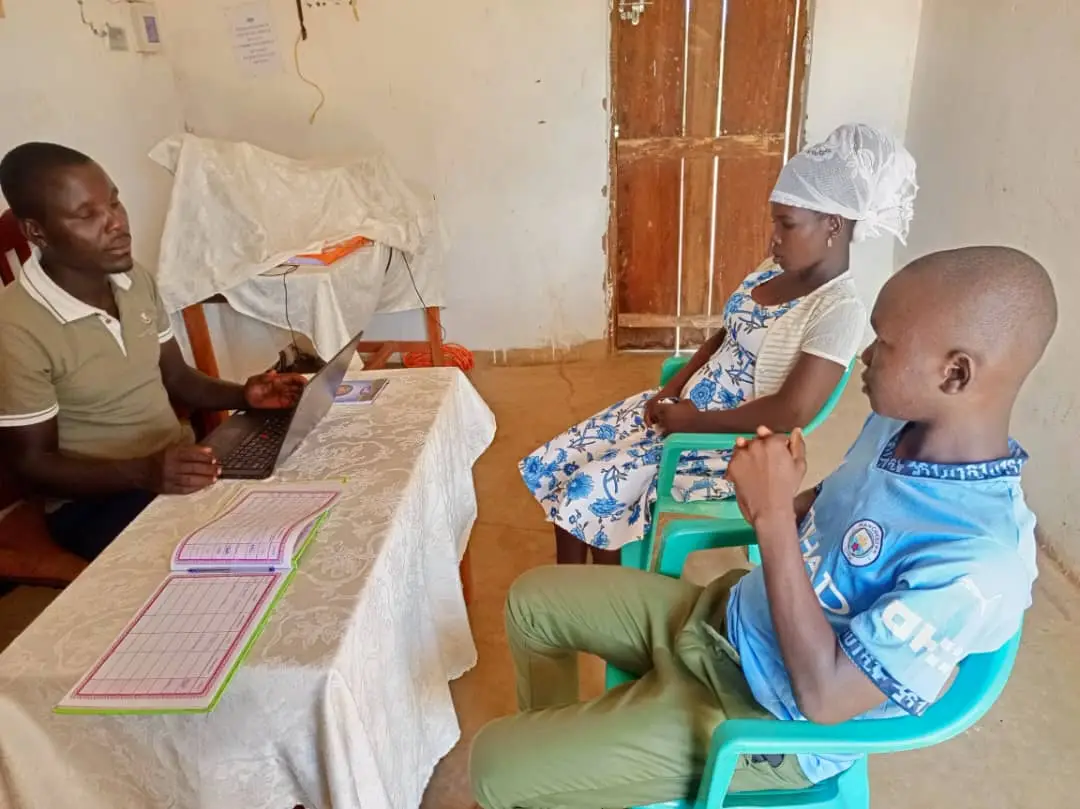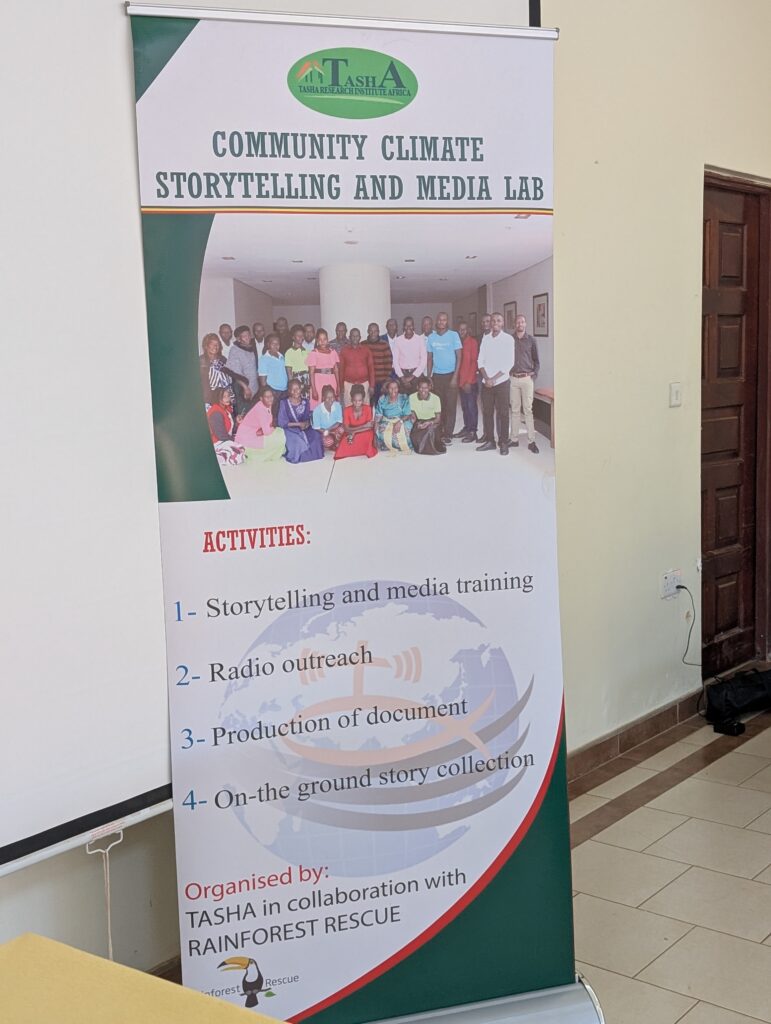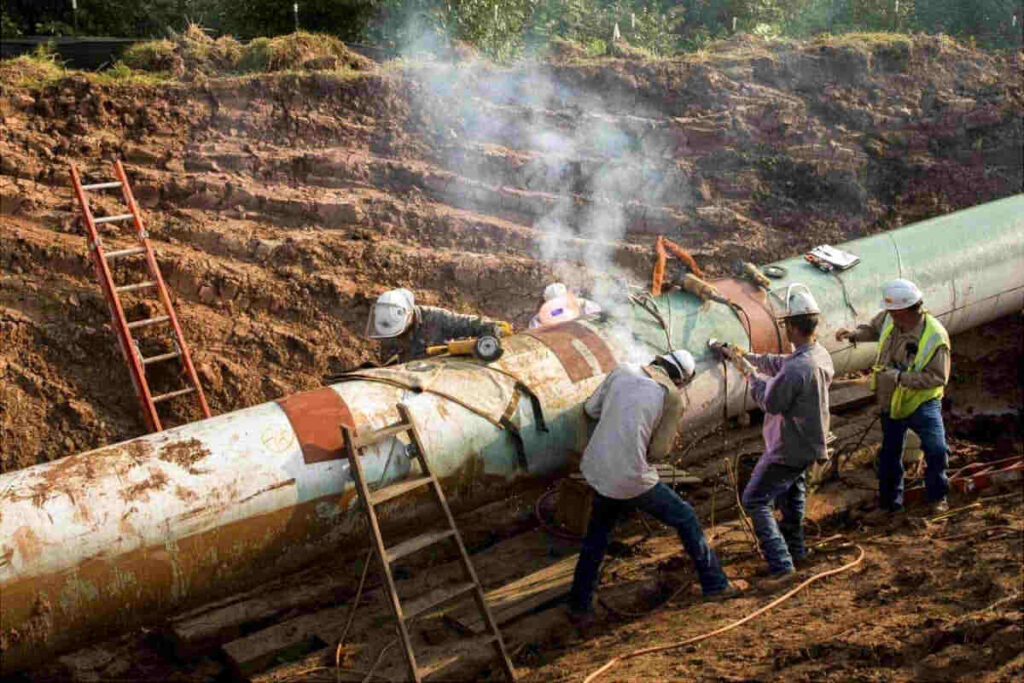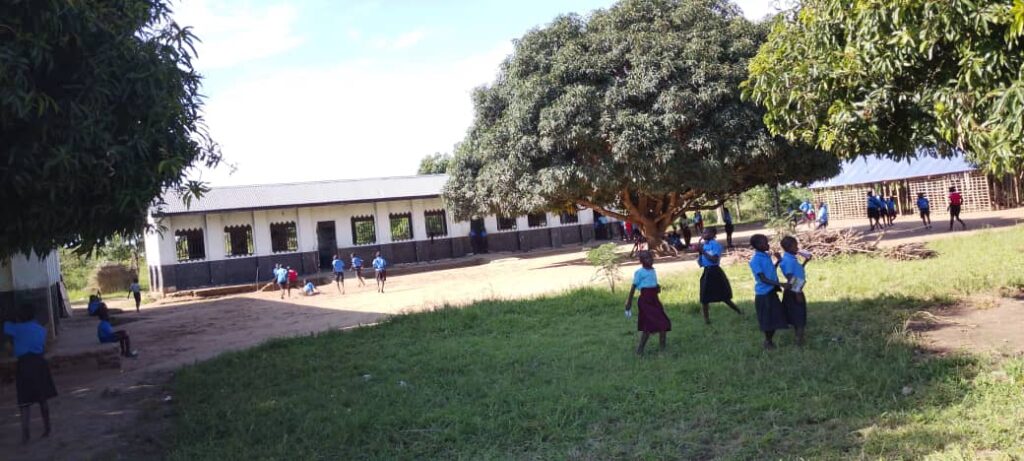For Oyirwoth Ronny, 20, and his sister Asera Joan, 23, life took a harsh turn after the death of their father. Today, they are not just grieving children—they are young voices demanding justice.
The siblings allege that they, along with their three younger siblings, have been cut off from land compensation payments made by TotalEnergies for the East African Crude Oil Pipeline (EACOP) project—money they believe is rightfully theirs.
The land in question—about one and a half acres in Ngwedo Farm, Mvule Parish—was once the backbone of their family’s stability. Their late father, Alimange Simon Obaya, had leased it to TotalEnergies for the development of the Kigole-1 oil well pad. The compensation he received annually helped pay school fees, cover medical bills, and put food on the table.
But since his death in 2018, that support has vanished.
“Our uncles took everything,” Ronny said during an emotional visit to the Tasha Research Institute. “They changed the compensation account to their names, and we haven’t received anything since. We were forced to drop out of school. I stopped at Senior 4. Joan dropped out too. Fiona left in Primary 4. There was simply no money.”

Ronny and Joan Relaying their story Tasha Research Institute’s Oyirwoth Richard at Tasha offices in Buliisa
Their story is heartbreakingly familiar. When Alimange passed, his brothers—particularly one uncle, Opio Steven—allegedly seized control of the land and the associated compensation, bypassing both the children and their surviving mother, Maganya Jennet.
Together, Alimange left behind five children: Ronny, Joan, Maber Vincent (17, now in Senior 3), Ayiorwoth Fiona (15), and Rwoth Omiyo Jeremy (7, in Primary 2). None of them, nor their mother, have been listed as official compensation beneficiaries since the patriarch’s passing.
In 2022, the family sought help from the Resident District Commissioner (RDC), who attempted to mediate. While the children say they received a small amount from a land sale, no formal agreement was ever reached—and they’ve never seen any receipts or payment records.
“When we ask for proof, they refuse to show us anything,” said Joan, her frustration evident.
Now, the children are seeking legal and social redress through the Tasha Research Institute, which is helping them document their case and advocate for change.
What They’re Asking For
Ronny and Joan are no longer just pleading for help—they’re demanding action. They want TotalEnergies to take responsibility for what they see as a system that has failed them entirely.
First and foremost, they are calling for an immediate freeze on all compensation payments currently being issued to their uncles, who they say hijacked the process after their father’s death. These payments, they argue, were never meant to enrich distant relatives while the rightful heirs struggled to survive.
They also want to see the compensation account reassigned to someone who truly represents the interests of the family—at least one of Alimange’s biological children. In their eyes, this is the only way to ensure that the funds are used for their intended purpose: supporting the education, health, and basic needs of the children left behind.
Finally, they are asking TotalEnergies to stop treating extended family members as the default representatives in compensation matters. They believe the company must start engaging directly with the people most affected—specifically the children and their mother, Maganya Jennet—rather than continuing to empower those who have excluded and exploited them.
For Ronny, Joan, and their siblings, these demands are not just about money. They are about dignity, justice, and the right to reclaim the future that was taken from them.
“This isn’t just a family matter—it’s a justice issue,” said a legal officer at Tasha. “It highlights a glaring oversight in compensation frameworks: there are no protections in place for minors or surviving spouses when the head of a household dies.”
As oil development accelerates across the Albertine region, compensation-related disputes like this are becoming more frequent. And with each new well and pipeline, families like Ronny and Joan’s risk falling through the cracks.
For these young Ugandans, the demand is simple and deeply human: a fair share of what their father left behind—and the chance to return to school and build the futures he once worked so hard to secure.



